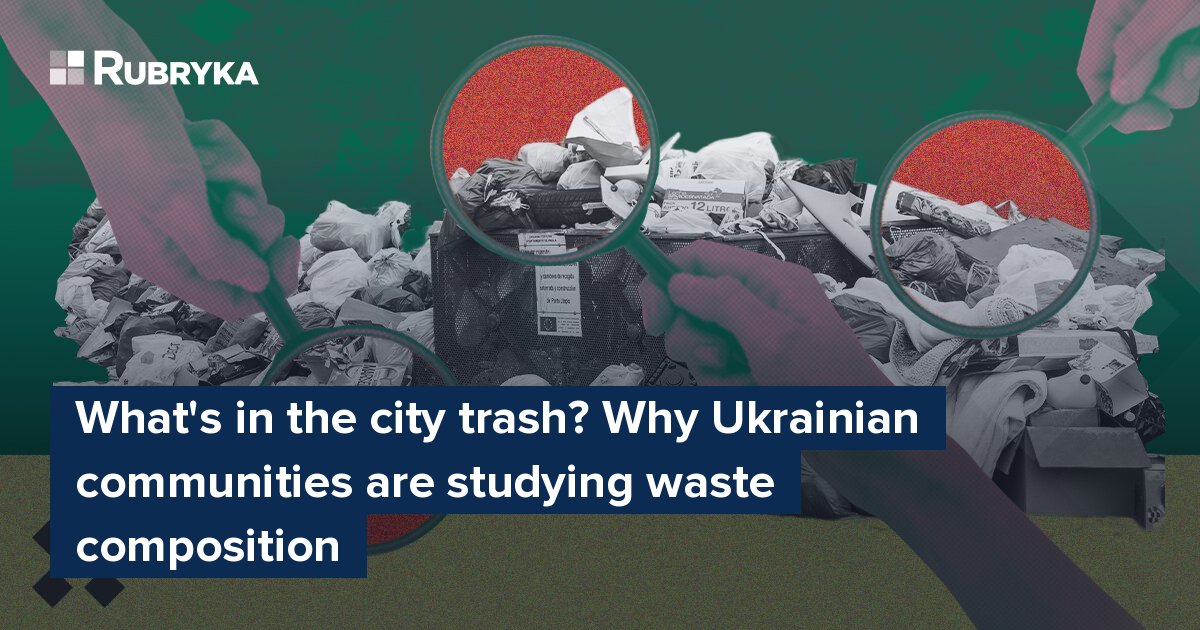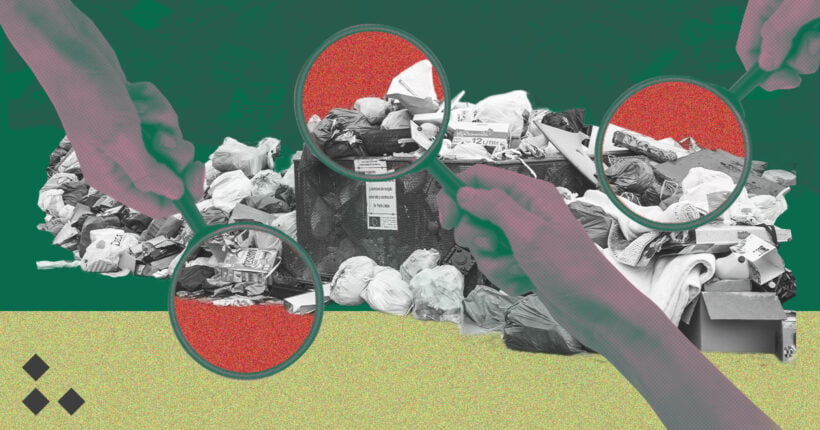
What's the problem?
Martial law and war don't exempt Ukrainian communities from developing regional waste management plans, as mandated by law. Each community must create a local waste management plan and strategies to reduce and prevent waste generation. Without these, communities cannot effectively plan or allocate budgets for waste management. Moreover, international donors, banks, and funds are willing to provide grants and loans only if a community has a clear, data-driven plan supported by research. This is also crucial for assembling teams dedicated to improving the situation.
Unfortunately, many local government and utility employees lack the necessary knowledge to develop such strategies. Where do they start, and what comes next? Simply placing containers for waste sorting isn't enough, especially with the growing challenges of war-related debris, biowaste, and packaging waste — much of which could be reused or recycled.
What's the solution?
"Reforming the waste management system is one of Ukraine's commitments under the EU Association Agreement," says the Zero Waste Alliance Ukraine team. "However, alongside legislative changes, it's vital to support local communities by teaching them the principles of waste hierarchy, circular economy, and sustainable waste management. They need to understand why a zero-waste strategy makes economic sense and how it works. There's a lack of systematic approaches to waste management at the local level. While there are some solutions, they address the issue only partially."
In collaboration with European and Ukrainian waste management experts, the Zero Waste Alliance Ukraine decided to help four communities achieve a more systematic approach. To do so, the alliance launched a training program where specialists explain everything from legislation to implementing infrastructure solutions and engaging the public.
How does it work?
What's in the trash?
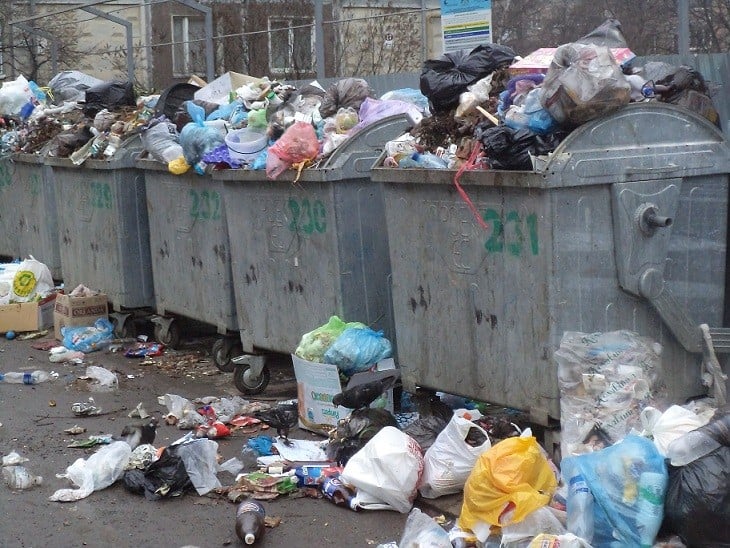
Garbage cans in the city. Illustrative photo
The Zero Waste Cities in Ukraine project, implemented by the Zero Waste Alliance Ukraine and supported by the EU's LIFE program, aims to establish modern waste management systems in four communities. The Portuguese research institute Guimarães Landscape Laboratory — Association for Sustainable Development coordinates the project.
In May 2024, the project began in Lutsk, Kherson, Pokrovsk (Donetsk region), and Derhachi (Kharkiv region). It will run for four years.
"Most of these communities face significant challenges due to ongoing combat and shelling. Yet, they remain committed because everyone understands this project is essential for post-war recovery and must start now," says the alliance team.
The first step for Ukrainian cities participating in the project was gathering data on waste management. A key phase is conducting morphological studies to analyze the composition of community waste. This data is crucial for implementing the National Waste Management Strategy and planning practical next steps.
The study will last a year to account for seasonal changes and will be conducted by a contractor selected through a tender. The results will identify the most common types of waste and strategies to reduce them.
Meanwhile, in Lutsk and Kherson, local NGOs and utility companies are already analyzing the situation and exploring ways to manage waste efficiently, considering budgets, resources, community involvement, and potential business partnerships.
What's happening in Lutsk?
In 2019, Lutsk introduced sorting waste into "dry" and "wet" fractions as part of its waste management strategy. However, Kateryna Raban, head of the Zero Waste Lutsk, a partner organization in the project, admits that the public awareness campaign at the time wasn't enough to get most residents on board.
"Because of that, some people didn't understand how it worked. They ended up throwing everything together, and the garbage truck would collect it all at once. Others were frustrated, asking, 'Why bother sorting if it's all going into one truck anyway?'" Raban recalls.
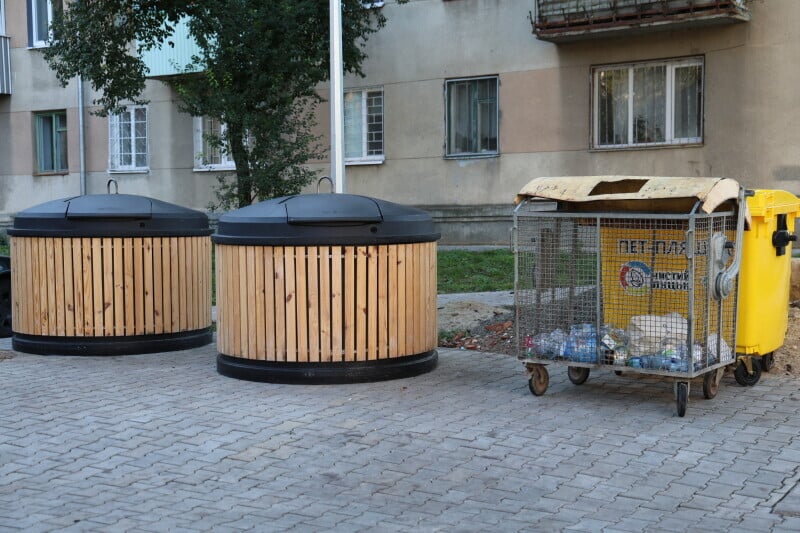
Waste sorting containers near semi-underground garbage containers in Lutsk. Photo courtesy of Oksana Lysak
The decision to introduce waste sorting was adopted without tests. Only in July 2024 did Lutsk complete its first detailed waste composition analysis. Raban believes decisions about waste need to be data-driven, and there's still a lot of work to do in Lutsk.
"In 2021, our team audited a single dumpster from a residential building. Even without complex analysis, it was clear that 40-45% of the waste was organic," Raban says. Local businesses, such as PasternakBio, could handle this organic waste. They already run a vermiculture farm and work with major manufacturers. "We need stronger cooperation between businesses and local authorities to scale this across the city," Raban says.
The recycling situation is better for materials like paper and PET plastic. However, residents often lack knowledge about proper sorting. For example, many don't crush PET bottles, which wastes container space. Schools collect paper, but children eager to win contests sometimes include unsuitable items. This highlights the need for better motivation systems and broader educational initiatives.
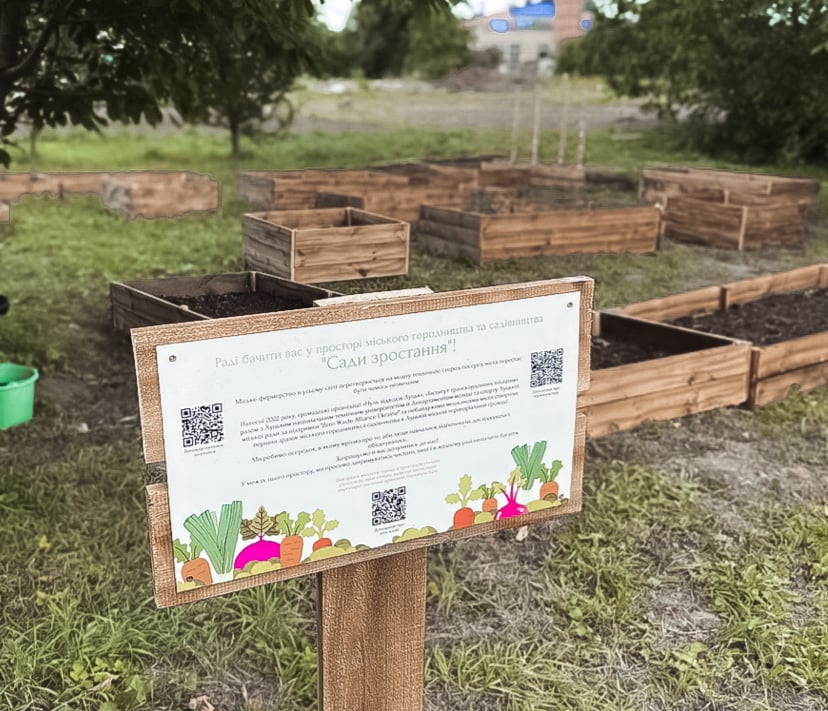
The "Gardens of Growth" city garden is an NGO Zero Waste Lutsk project. Photo courtesy of Kateryna Raban
Raban envisions a municipal composting facility where half the city's waste could be processed instead of ending up in a landfill. She also proposes creating a hub for artisans or a "materials library" where residents could borrow tools or rent items like holiday costumes. Such initiatives could extend the life of items and significantly reduce waste.
How Kherson handles waste amid the war
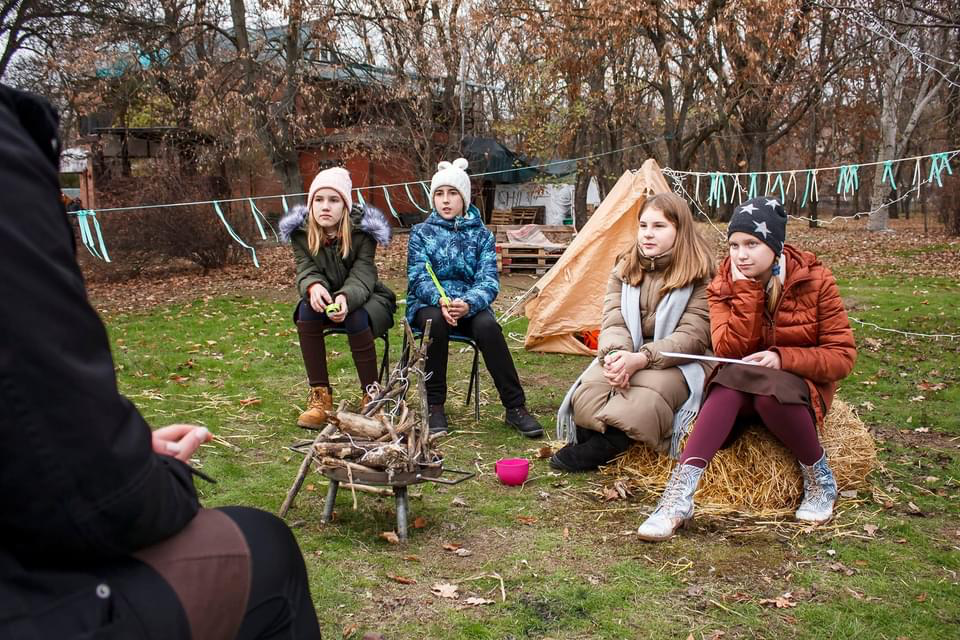
Kherson ZeroWaste Festival, a pre-war project of the NGO Ecological News. Photo: Facebook/EcologicalNews
Olha Mashkova, leader of the Kherson nonprofit Ecological News, who partakes in the Zero Waste Alliance's project, says that the culture of sorting waste by local co-ops in Kherson began developing a few years before the full-scale invasion. Eco-initiatives in the city had established several public composters and points for collecting batteries through the "Batteries, Give Up!" initiative. In 2021, the local business Green Line SV opened a household waste sorting center.
Russia's full-scale war, however, has destroyed all these achievements.
Now, alongside the pre-war challenges, Kherson is grappling with the aftermath of the Russian bombing of the Kakhovka Dam and the relentless shelling.
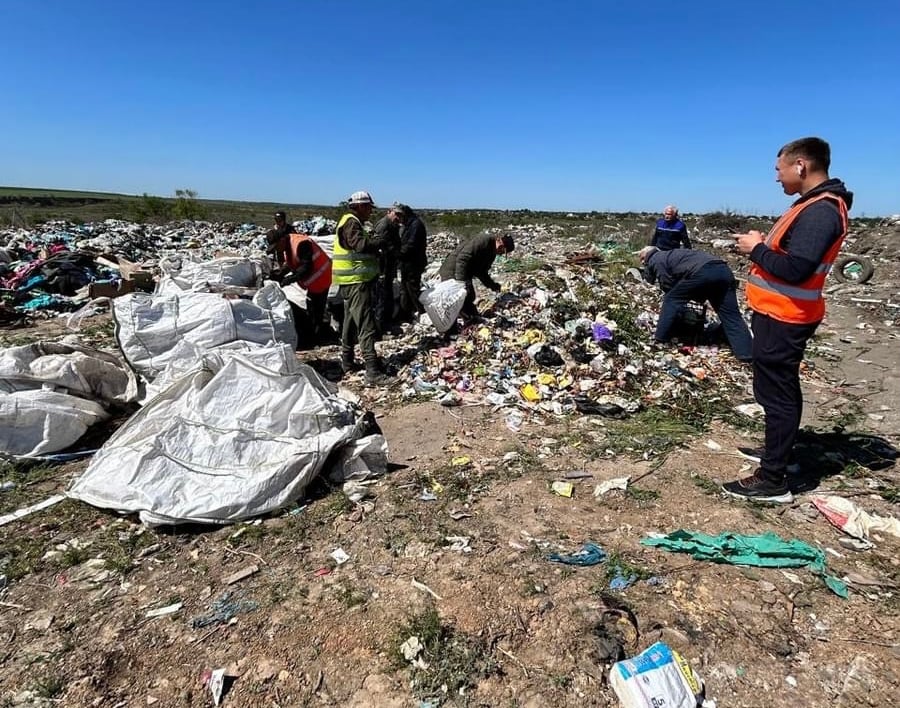
Research on the structure of solid household waste in Kherson. Photo: EKOPOLIS
Despite the war, Kherson's municipal enterprise, EKOPOLIS, has made history by conducting a structural analysis of household waste for the first time in the city's history. The first results are striking: almost 75% of the waste is organic. This shows that the city urgently needs to rethink its waste management approach.
Despite the chaos of war, activists from Ecological News are already working on solutions. Their pilot project, "Best Practices in Organic Waste Management for Small Communities in Ukraine," is nearly finished and ready to be expanded to other communities.
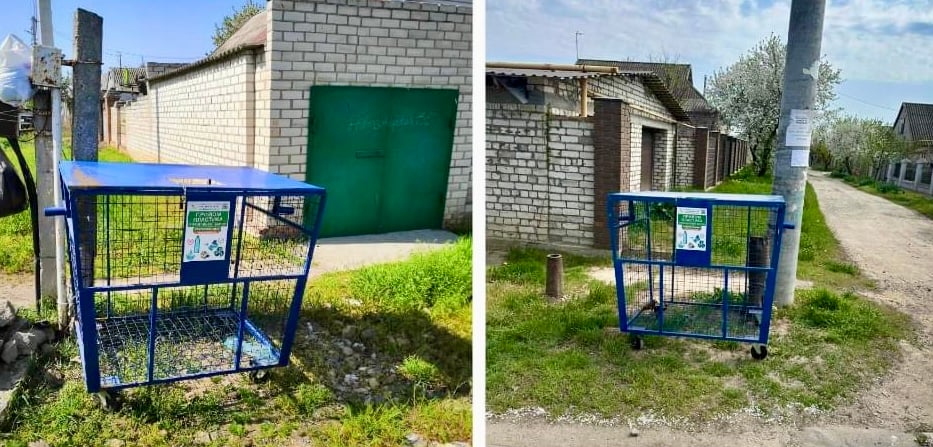
Separate waste collection in the Kherson community. Photo: EKOPOLIS
What unites rear and front-line communities?
Lutsk and Kherson share a common goal in waste management, but they also face unique hurdles. According to eco-activists, cities need to tackle these challenges in wartime with solutions tailored to their situation and involving businesses, local authorities, and the community. Waste management is no longer just about sorting — it's about rethinking the entire system.
"Mentality plays a huge role," says Olha Mashkova. "What works in one country doesn't necessarily work in another. And then there's the difference in economic development that affects infrastructure. That's why a hybrid approach works best — learn from the best international practices and create solutions that fit Ukraine. Many of these zero-waste solutions have always been Ukrainian, but historical factors like communization and Russification pushed them aside."
Olha believes Ukraine needs a fresh approach to waste management. This should involve assessing the current situation, bringing in foreign experts, learning from peers, engaging communities, and launching pilot projects that can eventually be scaled up.
"Local authorities are like the thread in a necklace — they create the conditions that allow businesses to invest, the public sector to contribute, and educators and scientists to bring their projects to life. Once that's in place, everything else will follow," the activist adds.
So far, the waste morphological analysis in both Lutsk and Kherson has completed the first of four seasons according to method recommendations, and the results are still being analyzed. These findings will help shape future waste management strategies, helping cities collect and use waste more effectively.
Will it really work?
"Joining this project has brought together people who truly believe in the possibility of transforming waste management in Ukraine," says Oksana Lysak, leader of the Ecology Department of Lutsk City Council.
She points out that while plenty of people care, they usually work within their circles. This project connects them, introduces them to waste management experts, and opens the door to new partnerships. It also motivates them to follow European standards with clear plans and timelines.
"Our involvement in this project is a step forward in shaping our waste management strategy in line with European practices. It's about growing a network of like-minded people and building a team of specialists in municipal enterprises and city councils who can improve waste management knowledge," Oksana Lysak says.
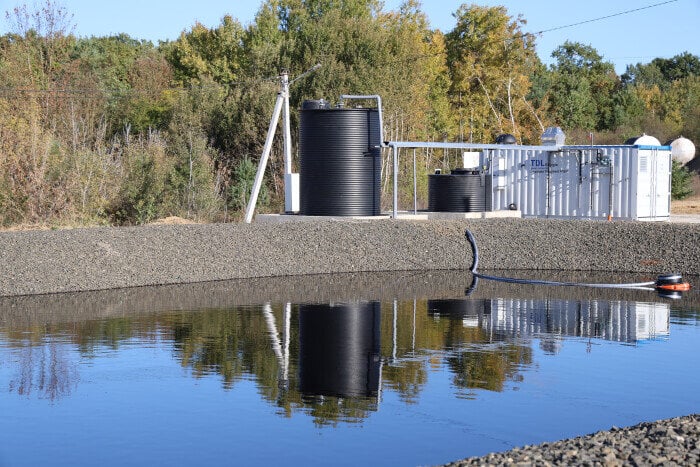
Leachate treatment plant. Lutsk City landfill. Photo courtesy of Oksana Lysak
Oksana Lysak believes the city's waste management efforts are already bearing fruit. New waste sorting stations, including the Clean Lutsk, Clean Community, and Clean Environment initiatives, have enabled effective recycling and waste management. Lutsk is also implementing an international project, "Joint Search for New Solutions," which involves setting up a leachate treatment station at a local landfill, developing an organic waste management plan, and organizing battery and accumulator waste collection. More than 100 battery collection bins have already been placed around the city, and schools and kindergartens are now setting up bins for glass, plastic, and PET bottles.
The strategy, along with the waste analysis results, will help determine the next steps for improving the city's waste management system and involving municipal enterprises, businesses, educational institutions, and authorities.
Lutsk's future goal is to increase the volume of waste sorting and develop composting systems at every level. Organic waste, the most considerable portion of total waste, can be repurposed, keeping it out of landfills.
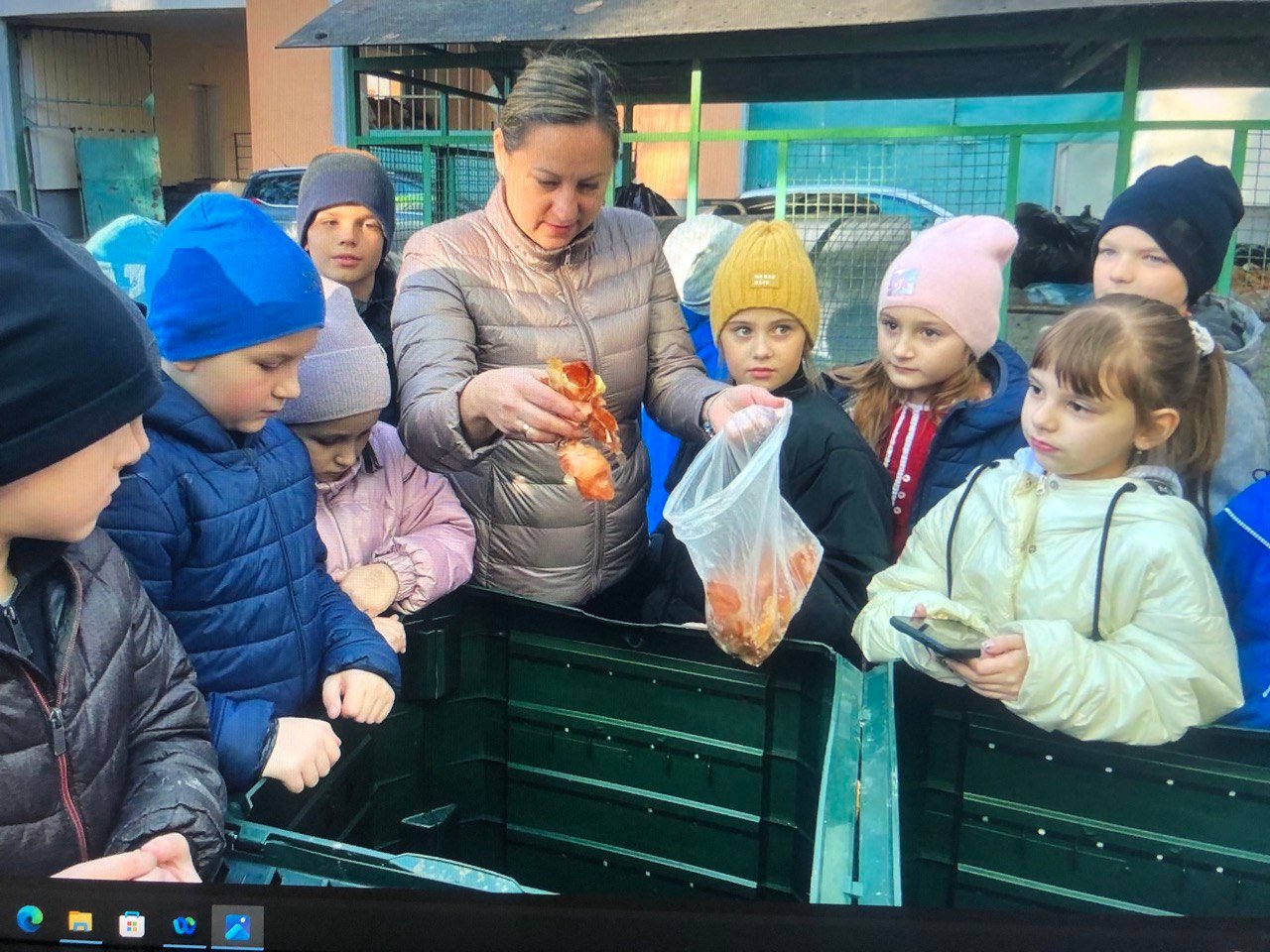
Composting in kindergarten. Photo courtesy of Oksana Lysak
There's already progress — composters set up in local schools and kindergartens are diverting around 100 cubic meters of organic waste from the landfill each year. Instead, it's being turned into compost to enrich the grounds of the same institutions.
However, challenges remain. According to Oksana Lysak, the biggest one is overcoming the resistance of residents who could become champions of change in waste management.
In contrast, Kherson faces even steeper challenges. The front-line city, still under daily shelling, struggles with the destruction of infrastructure, including waste management facilities, lack of financing, environmental war damage, and widespread contamination. Like Lustk residents, locals must also be educated on waste management practices.
Oksana Kolodii, an environmental engineer at EKOPOLIS, suggests starting with public awareness campaigns. She stresses the importance of training programs, educational materials, and information on the benefits of waste sorting. However, infrastructure also needs rebuilding and expansion, which requires grants, investments, and international aid funding.
"Kherson is my hometown, and despite the constant shelling, I know we will rebuild. For me, waste management is a top priority. It's essential to protect the environment and build an eco-conscious society," says Oksana Kolodii.
Even more helpful solutions
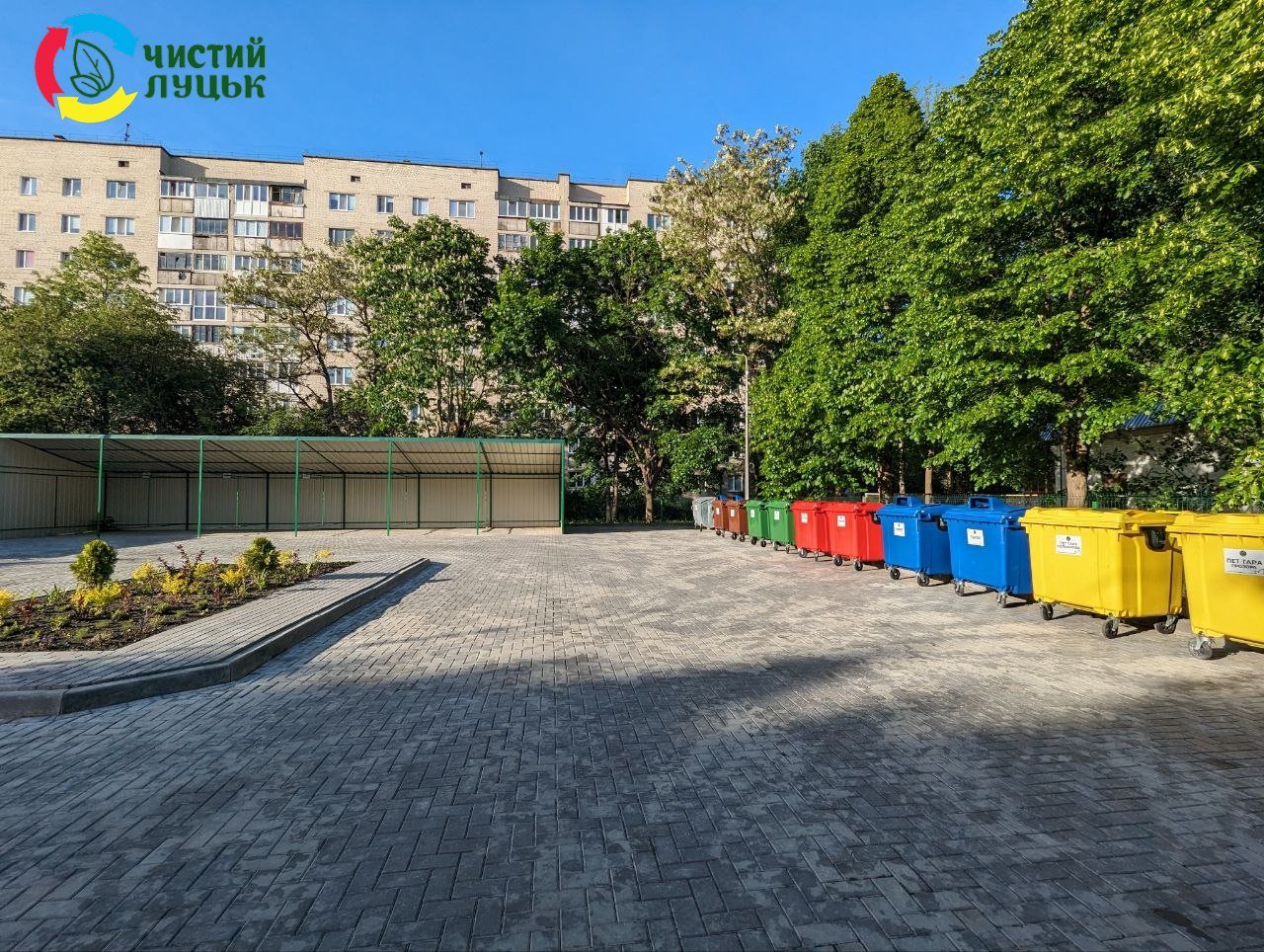
Clean Lutsk sorting station. Photo courtesy of Oksana Lysak
What else can communities do? To reduce waste generation, they can add more sorting stations, set up underground containers, build recycling facilities, and rehabilitate old landfills. Front-line areas like Kherson, where traditional infrastructure no longer exists, must have mobile waste collection points. Programs to dispose of hazardous waste, like leftover munitions and chemical substances, are also needed.
"To properly collect, sort, and process waste from destruction, we need clear legislation first. Only then can we do something about it," says Olena Kolodii. "After that, we could find ways to use it. For example, cement waste can be crushed — EKOPOLIS has the equipment to do it — and then it can used for road repairs."
It's crucial to study waste streams from different sectors and strengthen partnerships with companies that handle recyclables. Educational efforts — especially with young people — are key to changing waste habits. Even during wartime, it's possible to cut down on disposable items and practice waste sorting, ultimately reducing the amount of waste that ends up in landfills.
"Without our active involvement, no one will fix the system," Lutsk ecology manager Oksana Lysak concludes.


